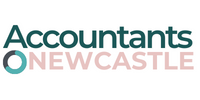In today’s digital age, businesses constantly seek ways to streamline their financial processes and increase productivity. One solution that has gained popularity in recent years is cloud accounting. But what exactly is cloud accounting, and how can it benefit your business? In this article, we will explore the ins and outs of cloud accounting, including how it works, its advantages, and the top solutions available in the market. We will also discuss how businesses can maximise efficiency with cloud accounting while addressing some potential challenges to be aware of. So, let’s dive in and discover how cloud accounting can revolutionise how you manage your finances.
What Is Cloud Accounting?
Cloud accounting is using cloud-based software to manage business finances and accounting processes.
With the rise of cloud computing technology, many firms have shifted from traditional accounting methods to cloud accounting software due to its numerous advantages. One of the key benefits of cloud accounting is its ability to provide real-time access to financial data, enabling businesses to make informed decisions promptly. Cloud accounting systems often come equipped with automation tools that streamline repetitive tasks, saving time and reducing errors. This modern approach to accounting is particularly relevant for businesses looking to enhance efficiency, scalability, and collaboration within their financial operations.
How Does Cloud Accounting Work?
Cloud accounting works by storing financial data on remote servers accessed through the Internet, allowing businesses to manage their accounting tasks using cloud-based software.
With Cloud Accounting Solutions, companies can input their financial information into the software, which is then automatically processed and organised securely in the cloud. This data is encrypted and stored in multiple locations, ensuring reliability and security. Users can access the software from any device with an internet connection, providing flexibility and real-time updates on their financial status. Cloud accounting software often integrates with other business tools, streamlining processes and enhancing efficiency.
What Are the Benefits of Using Cloud Accounting?
Cloud accounting offers businesses real-time access to financial data, cost savings, increased efficiency, and enhanced security.
One of the key advantages of cloud accounting solutions is the seamless scalability they offer. This means businesses can easily adjust resources based on their needs, whether adding more users or expanding storage capacity.
By leveraging cloud-based platforms, companies can significantly enhance their operational efficiency. With automation features and streamlined processes, tasks like invoicing, reporting, and reconciliations can be performed faster and more accurately.
The security enhancements provided by cloud accounting systems ensure that sensitive financial data is protected with robust encryption protocols and regular backups, safeguarding against potential breaches and data loss.
Real-Time Access to Financial Data
Real-time access to financial data through cloud accounting solutions allows businesses to make informed decisions promptly based on up-to-date insights and analytics.
Access to real-time financial data gives organisations the power to react swiftly to market changes, monitor performance metrics on the go, and identify emerging trends with agility. This level of immediacy not only enhances decision-making but also streamlines the analysis process, enabling companies to identify cost-saving opportunities more effectively.
By leveraging cloud accounting solutions, businesses can create dynamic financial forecasts, model scenarios, and assess risks promptly. The ability to track key performance indicators in real time translates into proactive strategic planning, fostering a competitive edge in today’s fast-paced business environment.
Cost Savings
Cloud accounting solutions help businesses achieve cost savings by reducing the need for physical infrastructure, automating repetitive tasks, and optimising financial processes.
By leveraging cloud accounting, organisations can eliminate the costs of maintaining on-premises servers and hardware, as everything is managed virtually in secure data centres. This reduces upfront investment in IT equipment and saves on ongoing operational expenses such as maintenance, electricity, and cooling.
Automation tools integrated into cloud accounting software streamline time-consuming processes like data entry, invoicing, and reconciliations. This improves efficiency and minimises errors, leading to potential financial savings and better decision-making based on accurate financial data.
Increased Efficiency
Cloud accounting enhances operational efficiency by streamlining accounting workflows, integrating with other business systems through versatile platforms, and enabling collaborative work environments.
Integration Platforms play a crucial role in this synergy, allowing seamless connections between various software used in daily operations. This ensures that financial data from different sources can be effortlessly consolidated and analysed in real time, leading to quicker decision-making and improved accuracy.
The collaborative features of cloud accounting solutions promote effective teamwork among accounting departments, enabling simultaneous access to shared data and facilitating smoother communication across teams.
Enhanced Security
Cloud accounting solutions offer enhanced security measures to safeguard financial data, protect sensitive information, and ensure compliance with industry standards.
One of the key benefits of cloud accounting solutions is the robust data encryption they employ, ensuring that financial information is protected from unauthorised access. These platforms often provide advanced user authentication protocols, such as multi-factor authentication, further enhancing security.
Furthermore, Pearl Accountants and other reputable cloud accounting providers regularly update their security measures to stay ahead of evolving cyber threats. This offers peace of mind to businesses entrusting them with their financial data.
Strict privacy measures are implemented to prevent data breaches and unauthorised disclosures. Compliance adherence is another crucial aspect, with cloud accounting solutions frequently undergoing audits to ensure alignment with industry regulations, providing clients with a secure and compliant environment for their financial operations.
What Are the Top Cloud Accounting Solutions?
The top cloud accounting solutions include QuickBooks Online, Xero, FreshBooks, Wave, and Zoho Books, offering comprehensive tools for managing financial data efficiently.
QuickBooks Online is renowned for its user-friendly interface and robust features, making it ideal for small to medium-sized enterprises looking to streamline their accounting processes.
On the other hand, Xero stands out for its advanced reporting capabilities and integration with third-party apps, catering to businesses with more complex financial needs.
FreshBooks excels in invoicing and time tracking, making it a top choice for freelancers and service-based businesses.
With its free accounting software, Wave is perfect for startups and sole proprietors seeking a cost-effective solution.
Zoho Books provides an all-in-one platform with project management features suitable for businesses looking for comprehensive financial management tools.
QuickBooks Online
QuickBooks Online is a popular cloud accounting solution that enables businesses to track income and expenses, manage invoices, and access financial reports remotely.
One of the key features of QuickBooks Online is its user-friendly interface, which simplifies the process of entering financial data and generating reports. This accounting software allows businesses to customise invoices and automate recurring billing for efficiency. Users can easily categorise transactions, reconcile accounts, and precisely track sales tax. QuickBooks Online also offers bank reconciliation tools that help streamline the process of matching transactions and ensuring the accuracy of financial records.
Xero
Xero is a cloud-based accounting software known for its user-friendly interface, comprehensive financial tools, and seamless integrations with business applications.
What sets Xero apart is its efficient handling of financial data. Users can easily manage invoicing, bank reconciliation, expense tracking, and payroll within the platform. The intuitive dashboard provides a real-time snapshot of the company’s financial health, allowing for well-considered choices. Xero’s integration capabilities with popular business applications like CRM systems, e-commerce platforms, and project management tools streamline workflow processes and increase productivity.
FreshBooks
FreshBooks is a cloud accounting solution for small businesses, providing invoicing, expense tracking, time management, and project management features in a single platform.
One tailored feature that sets FreshBooks apart is the intuitive invoicing functionality. Small businesses can easily create professional-looking invoices, customise templates, and automate recurring invoices, thus streamlining the billing process. The expense tracking feature simplifies the recording of financial data, allowing businesses to monitor expenditures efficiently.
Wave
Wave offers free cloud accounting software with features like invoicing, receipt scanning, accounting reports, and seamless integration with payment processing services.
One of the key functionalities of Wave’s free cloud accounting software is its versatile invoicing system. Users can easily create and send professional invoices to clients, track payments, and set up recurring billing.
The receipt scanning feature simplifies expense management by allowing users to upload and categorise receipts digitally. This not only saves time but also ensures accurate recording of financial data.
The robust reporting tools in Wave software aid in analysing financial performance and generating balance sheets, income statements, and other crucial reports.
Seamless integration with various payment processing services streamlines the overall accounting process, making it more efficient and convenient for users.
Zoho Books
Zoho Books is a comprehensive cloud accounting software that offers invoicing, expense tracking, inventory management, and financial reporting capabilities to businesses of all sizes.
With Zoho Books, users can easily create professional invoices, track expenses efficiently, and manage their inventory seamlessly. The user-friendly interface allows for smooth navigation, making it accessible for individuals with varying levels of accounting knowledge.
Its robust features enable users to generate insightful financial data reports, helping them make informed business decisions. This cloud-based solution ensures that financial information is secure and accessible from anywhere, providing flexibility and convenience.
How Can Businesses Maximise Efficiency with Cloud Accounting?
Businesses can enhance efficiency with cloud accounting by automating processes, utilising integrations, collaborating with team members, and leveraging mobile apps for remote access.
One key strategy to maximise efficiency in cloud accounting is automating repetitive tasks such as data entry and reconciliation, which saves time and reduces errors significantly. Organisations can free up valuable resources by incorporating automation tools that streamline processes to focus on more strategic financial tasks.
Integrating various platforms and software systems is crucial in ensuring a seamless flow of financial data across different departments. This interoperability enhances data accuracy, eliminates duplication, and provides a holistic view of the company’s financial health.
Effective team collaboration is another essential aspect, as it encourages real-time communication, facilitates quick decision-making, and promotes transparency. Cloud accounting fosters a cohesive working environment by enabling team members to access and update relevant financial information simultaneously.
Automate Processes
Automating processes with cloud accounting solutions reduces manual tasks, minimises errors, and accelerates workflow efficiency for businesses.
One of the significant benefits of leveraging automation tools in cloud accounting is the remarkable reduction in errors. By eliminating manual input and calculations, financial data accuracy is greatly enhanced, leading to more reliable and trustworthy reports. This not only boosts the overall credibility of the financial information but also minimises risks associated with human error.
Along with error reduction, another advantage is automation’s substantial time savings. Time-consuming tasks normally taking hours to complete manually can now be executed swiftly and accurately through automation. This allows professionals to focus on more strategic activities, such as analysing financial data and making informed decisions.
Workflow enhancements are apparent with process automation in cloud accounting. With streamlined processes and automated workflows, tasks are completed more efficiently, improving productivity and faster turnaround times. This not only enhances the overall performance of the accounting function but also enables businesses to adapt quickly to changing market conditions and demands.
Utilise Integrations
Integrating cloud accounting solutions with other business platforms enhances data flow and streamlines operations. It provides a unified view of financial information across systems.
By utilising Integration Platforms, companies can automate the exchange of financial data between different software tools, ensuring consistency and accuracy in reporting. This seamless integration also boosts operational efficiency by reducing the need for manual data entry and minimising the risk of errors.
The interoperability achieved through these integrations allows real-time data synchronisation, enabling teams to make informed decisions based on up-to-date information. This interconnectedness between systems enhances collaboration and transparency, improving productivity and strategic decision-making.
Collaborate with Team Members
Collaborating with team members using cloud accounting software fosters real-time communication, improves data accuracy, and enables seamless coordination on financial tasks.
By utilising cloud-based accounting solutions, teams can easily share and access financial data from anywhere, facilitating quicker decision-making processes and enhancing overall productivity. The centralised nature of accounting software ensures data integrity, reducing the risk of errors and discrepancies. Team members can collaborate efficiently, leaving comments, sharing insights, and updating information transparently and organised. This streamlines workflows and boosts accountability and transparency within the team.
Use Mobile Apps
Accessing cloud accounting systems through mobile apps gives the power to businesses with on-the-go financial management capabilities, ensuring flexibility, scalability, and real-time data access.
By leveraging this technology, companies can seamlessly integrate their financial data into a scalable infrastructure that adapts to their evolving needs. The convenience of accessing crucial information anytime, anywhere not only enhances productivity but also facilitates prompt decision-making. With mobile apps, professionals no longer have to be tied to their desks; they can monitor transactions, track expenses, and analyse financial reports effortlessly. This level of accessibility and responsiveness enables agile business operations and better financial planning.
What Are the Potential Challenges of Using Cloud Accounting?
Whilst cloud accounting offers numerous benefits, businesses may face challenges such as internet connectivity issues, data security concerns, and a learning curve associated with new software.
One of the primary obstacles businesses encounter with cloud accounting is the reliability of internet connectivity. Dependence on a stable internet connection for accessing Financial Data and software can be problematic, especially in areas with poor network coverage.
Ensuring robust data protection measures is crucial in a cloud environment to safeguard sensitive information from cyber threats and breaches.
Adapting to new accounting software can also pose challenges, requiring employees to undergo training and experience a temporary slowdown in productivity until they become proficient.
Internet Connectivity
Internet connectivity poses a challenge for cloud accounting users, as interruptions or slow speeds can disrupt data access, file transfers, and software functionality.
With the increasing reliance on Scalable Infrastructure and Cloud Accounting Solutions, a stable internet connection is imperative for businesses to seamlessly access their financial data and perform critical accounting operations. Organisations can avoid encountering operational delays, data inaccuracies, and potential loss of valuable information without reliable connectivity. This not only hampers day-to-day accounting processes but also jeopardises the business’s overall financial health and decision-making capabilities.
Data Security
Data security is crucial in cloud accounting to protect sensitive financial information, prevent unauthorised access, and maintain compliance with data privacy regulations.
Financial Data security plays a key role in safeguarding the integrity and confidentiality of crucial financial details within Cloud Accounting Solutions.
Access controls are established to limit entry to authorised personnel only, ensuring that sensitive information remains protected from potential breaches. Compliance measures further reinforce the security framework, helping organisations adhere to industry standards and regulatory requirements. By prioritising data security, businesses can instil trust among their clients, build a strong reputation, and minimise the risks associated with unauthorised data access.
Learning Curve
The learning curve associated with adopting new cloud accounting software can present business challenges, requiring training, adjustment periods, and ongoing user support.
Transitioning to cloud accounting systems involves more than selecting and implementing new software. It requires a fundamental shift in managing, storing, and analysing financial data. A key challenge lies in ensuring that employees are not only trained on the technical aspects of the new system but also understand the broader implications of their day-to-day accounting processes.
Effective user adaptation is crucial for maximising the benefits of cloud accounting software. This often involves creating a structured training programme that caters to users’ varying skill levels and encourages hands-on practice.
Conclusion
Cloud accounting solutions offer businesses a modern and efficient way to manage financial data, optimise processes, and enhance security in an increasingly digital landscape.
Transitioning to cloud accounting provides numerous benefits for organisations. One key advantage is the real-time access to financial data, enabling stakeholders to make informed decisions swiftly. Using cloud-based platforms enhances operational efficiency by automating repetitive tasks, freeing up more strategic planning and analysis time. The scalable infrastructure of cloud accounting allows businesses to adapt and grow without needing extensive hardware upgrades, leading to cost savings and improved flexibility.





